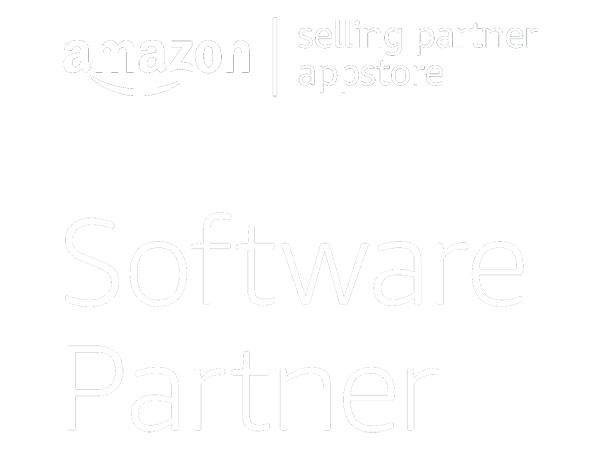It’s a question that Amazon sellers often ask as their business gains momentum. Once you start building primary skills as a marketplace seller—product analysis, optimizing campaigns and listings, sales cycles and logistics—it’s time to start looking at yourself as a business owner instead of a side hustler. As a business owner, you need a business license. So, do you need an LLC to sell on Amazon?
This post will help you understand what an LLC is, why (and when) to form an LLC for your Amazon business, and the financial advantages it provides.
What is an LLC?
LLC, or Limited Liability Company, is a type of business entity that provides protection to individuals and families who own businesses in the United States. A single person or group of shareholders can own an LLC. They are registered with the state where the owners are based, and provide both pass-through taxation and limited liability for business activities, including litigation.
LLCs are most popular among those who deal with high-risk activity who want their personal assets protected from business activities. This includes Amazon FBA sellers. For all intents and purposes, the LLC is a separate entity from its owners. Why is this important?
When your business needs to borrow money, open a bank account, pursue litigation, or defend against litigation, the LLC is responsible for those activities. Not you, personally.
LLC protection can provide a shield from liability risks associated with Amazon FBA sellers, such as unexpected costs due to damage, litigation, or loss of products during shipment or disputes over quality control claims. LLCs also offer considerable tax advantages, allowing for deductions on expenses related to starting up or running a company as well as income generated from self-employment. Ultimately LLCs are ideal for entrepreneurs who want to find financial advantages for their business and protect their personal assets.
What’s the difference between an LLC and a sole proprietorship?
A sole proprietorship does not require any formal registration with the state. Ownership is very straightforward in a sole proprietorship. All assets, liabilities, income, and expenses are handled solely by the owner. As such, it is the most basic form of business structure, and it offers few legal protections.
If you’re only experimenting with Amazon FBA, there’s nothing wrong with a sole proprietorship. You’re not yet borrowing money and you shouldn’t have major personal risk associated with a small-scale online business. But if you’re committed to growing your Amazon business, a sole proprietorship will limit your potential and leave you vulnerable to business risks.
Do you need an LLC to sell on Amazon?
The short answer is, no, you don’t need an LLC to sell on Amazon.
Should you have an LLC to sell on Amazon?
This depends on the products you’re selling, the amount of revenue you generate, and most importantly, your goals for your Amazon business. If you have plans for growth, starting an LLC is a good idea. An LLC will protect your personal assets, provide tax advantages, and make it easier to manage orders, customers and liabilities. It will help you build stronger banking relationships, business credit, and ultimately provide better access to ecommerce funding.
If you’re only starting out, an LLC may be more effort and money than you’re willing to commit. No problem. In the beginning, you can focus on developing your skills as a seller. But as you start to make money and create a vision for growth, it makes sense to form an LLC as quickly as possible.
When to create an LLC as an Amazon seller
Again, an LLC is not required to get started with Amazon FBA. But when you begin to see success, you should consider it quickly. If any of the following apply to your Amazon business, it may be time to form an LLC:
- You have tangible revenue goals or growth plans
- Your sales are consistently increasing
- Growth plans include funding and/or credit products
- Products you sell could cause injury
- You have concerns about separating your personal assets
Sounds like your Amazon FBA business? Time to set up an LLC.
How to set up an LLC
To start, you’ll need to determine which state will be the official home of your LLC. Different states have different filing fees, requirements, and formation processes. Once you’ve chosen a state, fill out the Articles of Organization form, which outlines core information about your company such as its name, purpose, and address. You’ll also need to appoint a registered agent in the state that will receive legal notices on behalf of the LLC and be responsible for filing annual reports if required. As an Amazon seller, this person is likely you.
Your state may also require additional documents or an Operating Agreement that outlines how your LLC is managed and structured. After all paperwork has been filed with the appropriate government body, you should prepare your application to acquire a business license or tax identification number from the Internal Revenue Service (IRS). With all this completed, your LLC will be ready to do business! It is ultimately up to you as the owner or manager of the LLC to ensure that you are in compliance with all applicable local laws and regulations; failure to do so could have serious legal repercussions for both yourself and your organization.
Do you need an EIN?
An EIN is a unique number used for tax and other business identification purposes. You can obtain one from Internal Revenue Service (IRS). LLCs generally need to provide an EIN in order to open a bank account or file income taxes under the business’s name. However, if you are a sole proprietor without any employees, you may not need an EIN for your business activities. If unsure of your specific situation, it’s best to consult either your local Small Business Administration office or tax advisor before filing taxes with the IRS.
But if you do plan to form an LLC, be sure to obtain an EIN so you can validate your business to financial institutions and other transaction partners.
And one more note: an EIN is free. Do not pay for services that obtain an EIN for your Amazon business. Work directly with the IRS and the process is straightforward.
LLCs are becoming a more popular way to do business, and for good reason. They offer a number of benefits that sole proprietorships don’t, and they’re relatively easy to set up. If you’re serious about growing your Amazon business, it’s worth setting up an LLC.




